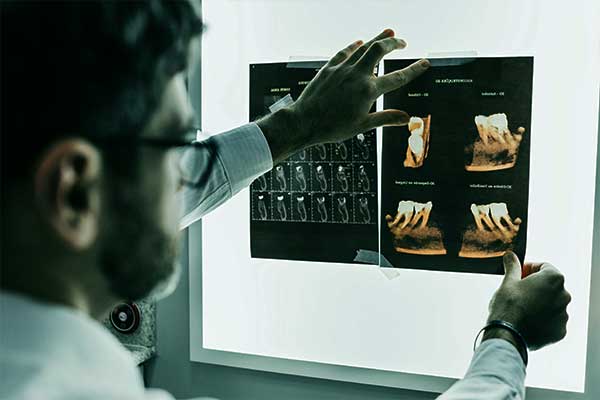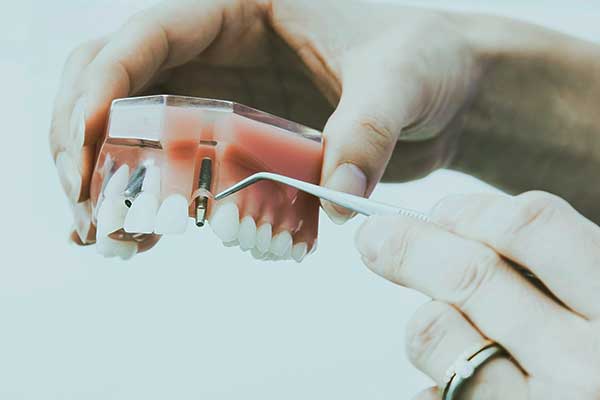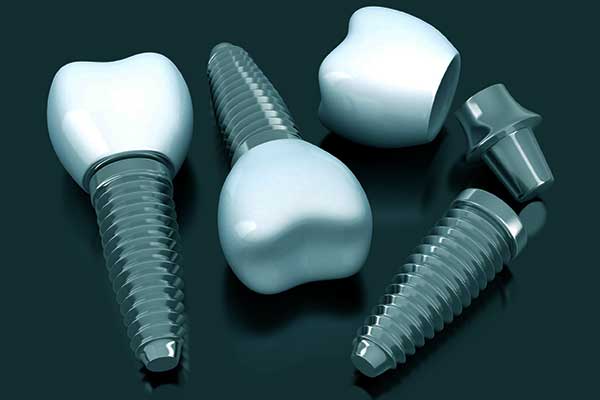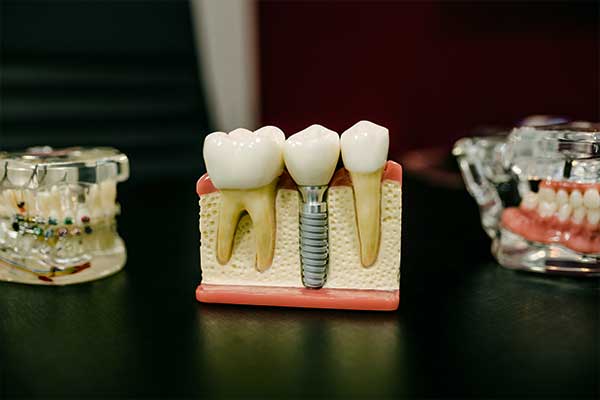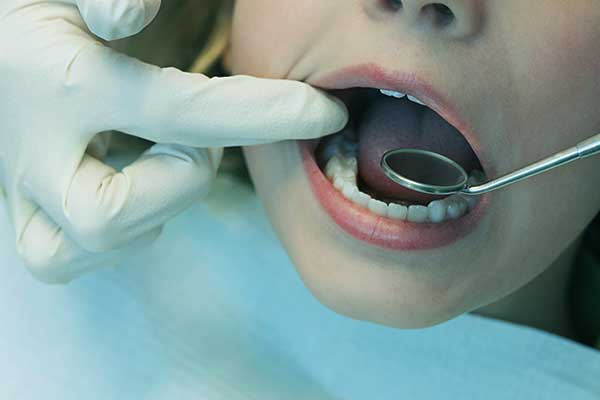Foods That Damage Your Teeth
Dental health is an integral part of overall well-being, yet many people inadvertently harm their teeth through their dietary choices. From sugary snacks to acidic beverages, certain foods can wreak havoc on your dental enamel, leading to various oral health issues. Understanding which foods to avoid can significantly contribute to maintaining a healthy smile.
Common Foods That Damage Teeth
- Sugary Snacks and BeveragesConsuming excessive amounts of sugary snacks and beverages can be detrimental to dental health. Sugars from these foods feed bacteria in the mouth, leading to the formation of plaque, a sticky film that coats the teeth. Over time, plaque buildup can result in tooth decay and cavities.
- Acidic Foods and DrinksAcidic foods and drinks, such as citrus fruits, carbonated sodas, and vinegar-based dressings, can erode tooth enamel. This protective outer layer of the teeth can gradually wear away due to frequent exposure to acidic substances, increasing the risk of sensitivity and discoloration.
- Sticky FoodsSticky foods like candies, dried fruits, and chewy snacks can cling to the surfaces of teeth, making it challenging to remove them through regular brushing and flossing. As a result, bacteria thrive on these remnants, producing acids that weaken tooth enamel and promote decay.
- Hard FoodsConsuming hard foods like ice, popcorn kernels, and nuts can pose a risk to dental health. Biting down on hard objects can potentially chip or crack teeth, leading to discomfort and requiring dental intervention to repair the damage.
We provide the exceptional service we’d want to experience ourselves!
Get offers for dental treatment prices in turkey
BEFORE&AFTER PHOTOS
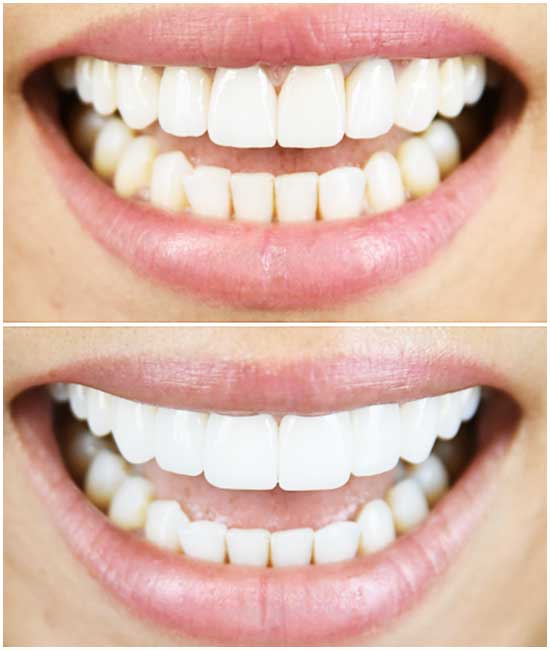
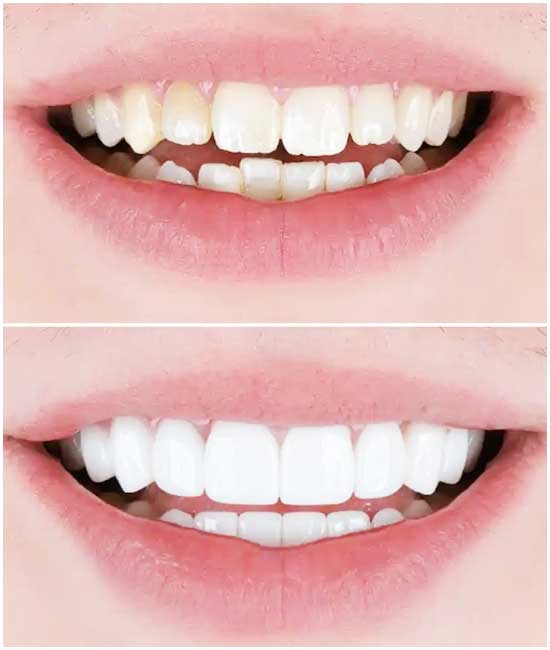
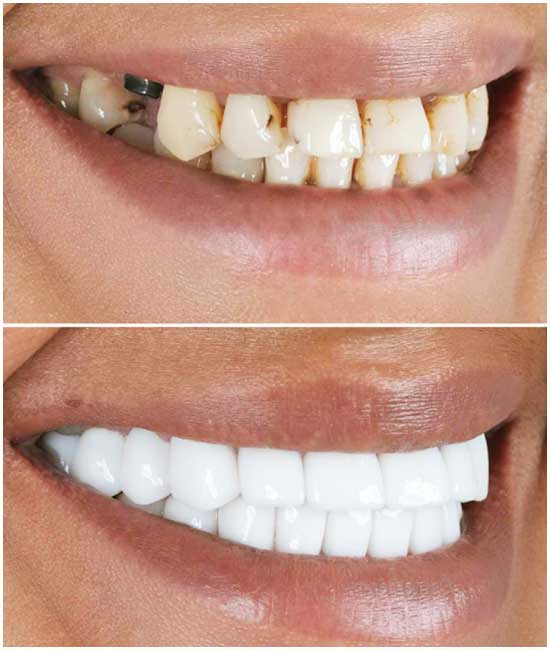
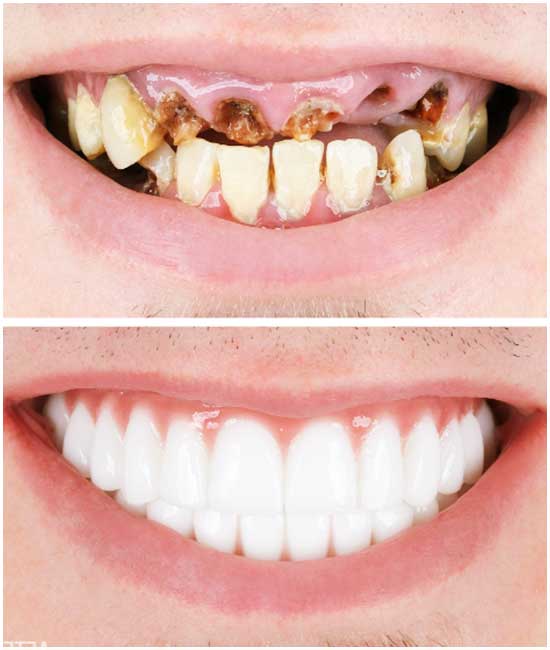
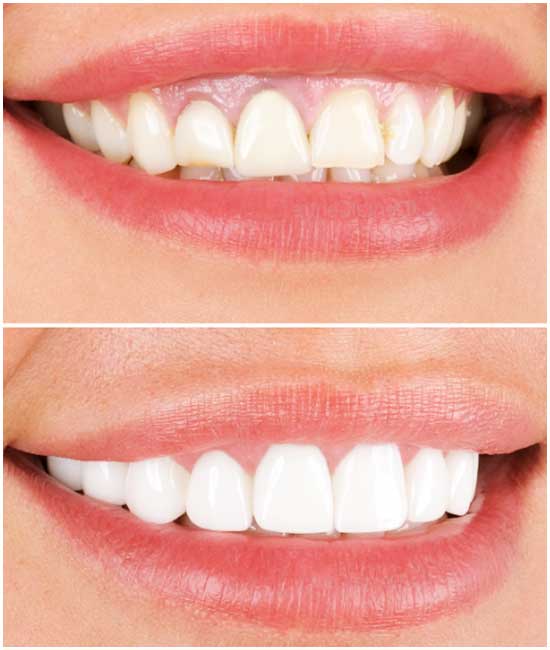
Effects of Sugary Snacks and Beverages
The consumption of sugary snacks and beverages contributes significantly to the development of dental problems. When sugars from these foods interact with bacteria in the mouth, they produce acids that attack tooth enamel. This process, known as demineralization, weakens the enamel and makes it more susceptible to decay.
Additionally, the formation of plaque on the teeth provides an ideal environment for bacteria to thrive, leading to an increased risk of cavities. Without proper oral hygiene practices and dietary modifications, individuals who regularly consume sugary snacks and beverages may experience a decline in dental health over time.
Impact of Acidic Foods and Drinks
Acidic foods and drinks can erode tooth enamel, the protective outer layer of the teeth. Enamel erosion occurs when acids from these substances soften the enamel, making it more vulnerable to damage. As the enamel wears away, teeth may become sensitive to hot, cold, or sweet stimuli, causing discomfort and pain.
Furthermore, prolonged exposure to acidic substances can lead to tooth discoloration and surface irregularities. Over time, this can affect the aesthetic appearance of the smile and necessitate cosmetic dental treatments to restore the teeth’ natural beauty.
Risks Associated with Sticky Foods
Sticky foods present unique challenges to dental health due to their tendency to adhere to tooth surfaces. Despite thorough brushing and flossing, remnants of sticky foods can remain trapped between teeth and along the gumline, providing a breeding ground for bacteria.
The prolonged presence of these bacteria produces acids that attack tooth enamel, leading to the development of cavities and gum disease. Individuals who frequently consume sticky foods should be vigilant about maintaining good oral hygiene habits to minimize the risk of dental problems.
Dangers of Consuming Hard Foods
While hard foods may seem harmless, they can pose a significant risk to dental health. Biting down on hard objects can exert excessive force on teeth, potentially causing them to chip, crack, or fracture. Additionally, individuals with weakened enamel or dental restorations are particularly susceptible to damage from hard foods.
In some cases, the force of biting down on hard objects can dislodge dental fillings, crowns, or veneers, necessitating prompt dental care to address the issue. To prevent dental emergencies resulting from consuming hard foods, it is essential to exercise caution and avoid biting down with excessive force.
Tips for Protecting Dental Health
Maintaining optimal dental health requires a combination of mindful eating habits and diligent oral hygiene practices. To safeguard your smile against damage from harmful foods, consider the following tips:
- Limit your consumption of sugary snacks and beverages, opting for healthier alternatives like fruits, vegetables, and dairy products.
- Rinse your mouth with water after consuming acidic foods and drinks to neutralize acids and minimize their impact on tooth enamel.
- Choose sugar-free gum or mints to stimulate saliva production, which helps to wash away food particles and neutralize acids in the mouth.
- Brush your teeth at least twice a day with fluoride toothpaste and floss daily to remove plaque and bacteria from between teeth and along the gumline.
- Schedule regular dental check-ups and cleanings to monitor your oral health and address any concerns before they escalate into more significant problems.
By incorporating these preventive measures into your daily routine, you can help protect your teeth from damage and maintain a healthy, radiant smile for years to come.
FAQs about Foods That Damage Your Teeth
- How does sugar contribute to tooth decay?Sugar fuels bacteria in the mouth, leading to the production of acids that attack tooth enamel and cause decay.
- Can brushing and flossing prevent dental damage from sticky foods?While brushing and flossing are essential for oral hygiene, they may not completely remove sticky food particles from between teeth and along the gumline.
- Are all acidic foods and drinks harmful to dental health?While acidic substances can weaken tooth enamel, consuming them in moderation and rinsing with water afterwards can help minimize their impact on dental health.
- Is it necessary to avoid all hard foods to protect dental health?While hard foods can pose a risk to dental health, exercising caution and avoiding biting down with excessive force can help prevent damage to teeth.
- How often should I visit the dentist for check-ups and cleanings?It is recommended to schedule dental check-ups and cleanings every six months to monitor your oral health and address any concerns promptly.
Conclusion of Foods That Damage Your Teeth
The foods we consume play a significant role in our dental health, with certain foods posing a greater risk of damage to our teeth than others. Sugary snacks, acidic beverages, sticky foods, and hard objects can all contribute to enamel erosion, tooth decay, and other oral health issues. By being mindful of our dietary choices and practicing good oral hygiene habits, we can mitigate these risks and preserve our smiles for a lifetime.

